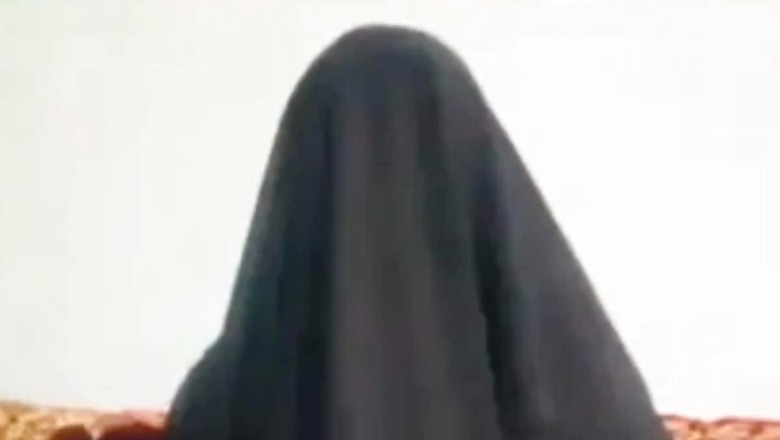
views
In a video that shows only a glimpse of her face, an Afghan woman sings as part of a broader online protest against a new law that bans women from speaking in public.
The law, announced by the Taliban last week, requires, among other things, that women’s faces, bodies and voices be “covered” outside the home.
In response, Afghan women both inside and outside the country have posted videos on social media protesting the new restrictions using hashtags such as “my voice is not banned” and “no to the Taliban.”
In a video reportedly shot inside Afghanistan, a woman can be seen dressed head-to-toe in black and covering her face with a long veil.
“You have silenced my voice for the foreseeable future… you have locked me in my house for the crime of being a woman,” she says.
Groups of women activists posted videos raising their fists or tearing up photos of top Taliban leader Hibatullah Akhundzada, who rules by decree from the southern city of Kandahar.
Raise Your Voice for Freedom Of Women!—This is the answer of brave Afghan women’s on the Taliban's new laws.
—Afghan women are boldly countering Taliban’s New Draconian law by singing out louder than ever.#MyVoiceIsNotForbiden #WomenRights #UN pic.twitter.com/xszvCV0Rvp
— Jahanzeb Wesa (@JahanzebWesa) August 27, 2024
“A woman’s voice is the voice of justice,” an activist group chants in another video.
In another, X user Taiba Sulaimani sings while adjusting her veil in a mirror.
“A woman’s voice is her identity and not something that should be hidden,” she says.
The morality law, known as the “Promotion of Virtue and Prevention of Vice,” formalizes many rules that have already been in place since the Taliban seized power in 2021.
It says women cannot sing or recite loudly in public and cannot carry their voices beyond the confines of their homes.
“If an adult woman has to leave her home out of necessity, she is obliged to cover her face, body and voice,” it says.
The law refers to a woman’s voice as “aurat” – a term used in Islamic law, sharia, to refer to the intimate parts of a man or woman that must be covered.
Women and men are not allowed to look at members of the opposite sex who are not close relatives, and taxi drivers are barred under the law from transporting women travelling without a male guardian.
When the Taliban came to power, they imposed a strict interpretation of Islamic law.
The top Taliban government spokesman, Zabihullah Mujahid, has dismissed criticism of the law as “arrogance” and a misunderstanding or disregard of sharia.
Women are the main victims of restrictions introduced over the past three years that limit access to education, public spaces and many jobs and have been described by the United Nations as “gender apartheid.”
The United Nations and other international organizations have condemned the new law, saying it further curtails women’s rights.
On Tuesday, the UN High Commissioner for Human Rights called for the law to be repealed, calling it “totally intolerable.”
The law “cements a policy that completely erases women’s presence in the public sphere – silencing their voices and depriving them of their autonomy, effectively attempting to turn them into faceless, voiceless shadows,” said spokeswoman Ravina Shamdasani.




















Comments
0 comment